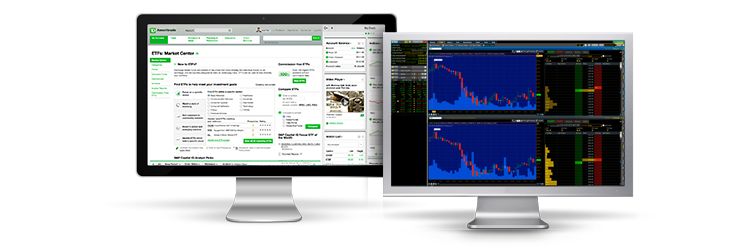Select the Right ETF for Your Stock Market Investments
Post on: 4 Июль, 2015 No Comment

ETFs Can Fill Need for Core Investments or Help Capture Short-Term Profits
You can opt-out at any time.
Please refer to our privacy policy for contact information.
Exchange traded funds (ETFs) have been on the market for some time now, however some investors in the stock market are still not familiar with the securities. ETFs are similar to index mutual funds but there are some important differences.
As noted in the two previous articles (see links at end of this article), ETFs are a pools of securities that duplicates or mimics a stock market index. The index may be stocks, bonds, commodities or other securities. One of the most important differences between ETFs and index mutual funds is ETFs trade on the stock market like stocks.
Investors in the stock market should learn how ETFs fits into your investment objectives. If you prefer to buy individual stocks (as opposed to mutual funds, for example), you still might want to use ETFs for short-term coverage of the market or market segments.
Matching ETFs to Objectives
ETFs, like any other investment, must meet an investment objective to be considered for inclusion in an investor’s portfolio. Depending on which ETFs you consider, you could select a very conservative or very aggressive investment or find some middle ground that fits your risk tolerance.
The broad market and market index ETFs make good core holdings for long-term investors as long as you don’t plan on making regular investments like dollar cost averaging.
A core holding is a mutual fund or exchange traded fund that is broad based and central to an investor’s investment strategy. The investor will plan an investment to hold and not trade.
Dollar cost averaging is a systematic way to make investments that results in a lower average cost. It works well with mutual funds where the investor can buy directly from the fund with no transaction fee. The commissions you pay a broker for buying ETF shares defeat the purpose of dollar cost averaging by adding extra cost to each transaction. For a lump sum deposit, the ETF is probably the better choice because most offer lower expense ratios than many mutual funds.
Sector ETFs may be used to gain exposure in special market niches where an investor may believe there is growth potential, but it’s unclear which companies will emerge as leaders. The sector fund will give exposure to that market without having to pick a winner out of hundreds of contenders.
Using ETFs to Diversify
Investors can use exchange traded funds to diversify their holdings without buying a large number of individual securities. ETFs that track bond indexes are popular for this function, since many investors are unfamiliar with selecting and investing in individual bonds.
The liquidity of ETFs let you move in and out of different funds as your diversification needs change and the many narrow and broad indexes represented give you a wide selection.
Indexes are significant diversification tools since they often represent either whole markets or large parts of markets. ETFs allow investors to be precise in establishing a diversification plan that touches all their needs.
Tax Consequences

ETFs are considered more tax efficient than mutual funds. They don’t buy or sell stocks or bonds often because they mimic an index and there is minimal dividend income from most ETFs. You are not taxed until you sell the ETF and then only if you earned a profit.
When investors in a mutual fund want to redeem their shares, the fund must buy them back. That may mean selling stocks or bonds in the portfolio for a profit, which creates a taxable event for the other mutual fund shareholders.
When the fund sells an asset for a profit, it creates a capital gains distribution (tax) that is passed on the shareholder in proportion at the end of the year. Shareholders have no control over these tax events and may be surprised at the tax bill they receive from the mutual fund.
With ETFs, all the trading is done among shareholders on the stock exchange, so the fund does not have to sell stocks to redeem shares. This means few if any capital gains distributions at the end of the year.
However, you should always check with a qualified tax adviser before making any decisions based on the tax consequences.
Conclusion
ETFs offer investors in the stock market an alternative to index mutual funds that allows for long-term investing and shorter-term trading to take advantage of perceived opportunities. For more information on ETFs, visit About.com’s site on exchange traded funds.














